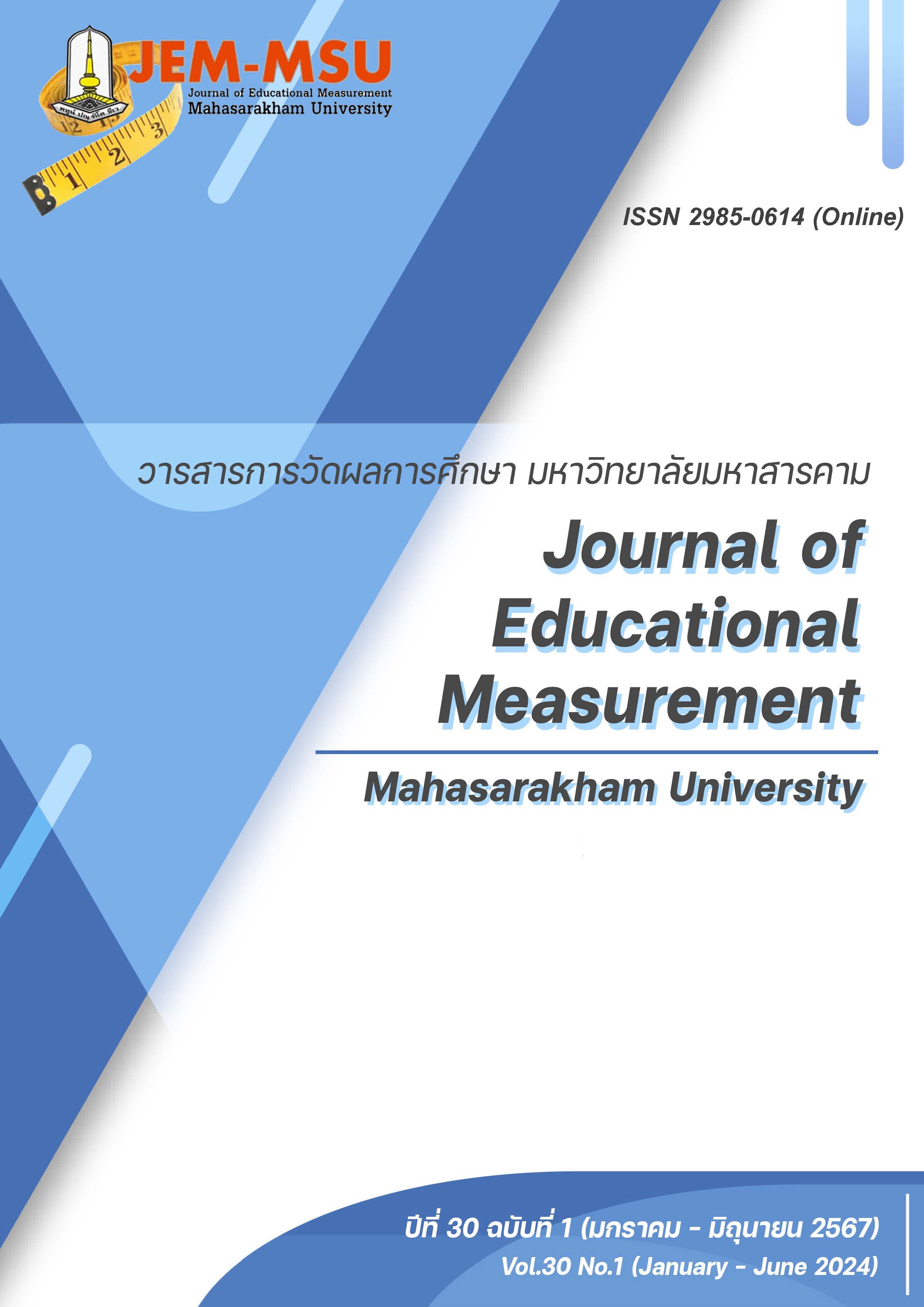The Effectiveness of Learning Management Model Enhancing Consciousness and Self-regulation Based on Metacognition Approach, Collaborative Learning and Social Learning Theory for Sixth Grade Students
Main Article Content
Abstract
The purposes of this research were 1) to compare students’ consciousness and self-regulation before studying the instructional model with those after studying the instructional model based on the metacognition approach, collaborative learning, and social learning theory, 2) to compare consciousness and self-regulation of students in the group that were taught with the learning management model and the those in the control group that were taught with normal practice. This research followed the Research and Development process composed of three phases: 1) studying the state of problems, needs, and the body of knowledge related to problem-solving, 2) developing the instructional model and trying it out, and 3) studying the effectiveness of the instructional model. In phase 3, the sample was 37 grade 6 students from Group 1 and 36 grade 6 students from Group 2 of Tessaban 4 School (Rattanakosin 200 Years), Muang Nakhon Phanom Municipality, Nakhon Phanom Province in the academic year 2022, selected by cluster random sampling, using the student group as the sampling unit. The research instruments used for data collection were 1) the consciousness measurement form, composed of 25 items, and 2) the self-regulation assessment form, composed of 20 items. The statistics used for data analysis were the mean, standard deviation, t-test for dependent samples, and One-way MANOVA.
The results were as follows:
1. The students in the experimental group, assigned to learn with the learning management model, had consciousness and self-regulation after learning higher than before learning, with a statistical significance level of .05.
2. The students in the experimental group, assigned to learn with the learning management model, had consciousness and self-regulation after learning higher than the students in the control group, with a statistical significance level of .05.
Article Details

This work is licensed under a Creative Commons Attribution-NonCommercial-NoDerivatives 4.0 International License.
The content and information contained in the published article in the Journal of Educational Measurement Mahasarakham University represent the opinions and responsibilities of the authors directly. The editorial board of the journal is not necessarily in agreement with or responsible for any of the content.
The articles, data, content, images, etc. that have been published in the Journal of Educational Measurement Mahasarakham University are copyrighted by the journal. If any individual or organization wishes to reproduce or perform any actions involving the entirety or any part of the content, they must obtain written permission from the Journal of Educational Measurement Mahasarakham University.
References
Bandura, A. (1997). Self-Efficacy: The exercise of control. W.H. Freeman and Company.
Coon, D., & Mitterer, J. O. (2010). Psychology: A Journey (4th ed.). Cengage Learning.
Eaude, T. (2011). Thinking Through Pedagogy for Primary and Early Years. Learning Matters Ltd.
Hartman, H. J. (2001). Metacognition in Learning and Instruction: Theory, Research and Practice. Kluwer Academic Publishers.
Leighton, M. S. (2012). Cooperative learning. In J. M. Cooper (Ed.), Classroom teaching skills (p. 255-296). Cengage Learning.
Moilanen, K. L. (2007). The Adolescent Self-Regulatory Inventory: The Development and Validation of a Questionnaire of Short-Term and Long-Term Self-Regulation, Journal of Youth and Adolescence, 36, 835-848.
Zimmerman, B. J. (1990). Self-regulated learning and academic achievement: An overview. Educational Psychologist, 25(1), 3-17. https://doi.org/10.1207/s15326985ep2501_2
Office of Academic and Educational Standards. (2017). Guidelines for learning management according to the basic education core curriculum, 2008. Agricultural Cooperative Association Printing Press. (In Thai)
Wattanasiritham, P., & Sanjorn, S. (2000). Desirable Thai Consciousness. Foundation for Rural Reconstruction of Thailand. (In Thai)


